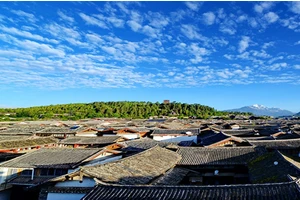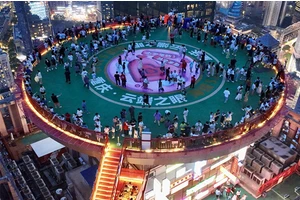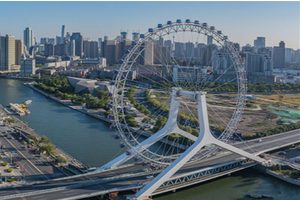Tourism accidents in Japan
Approximate cost of Japanese tourism
If you plan to travel to Japan for about 10 days, 10,000 yuan is enough, but the price is different in different tourist seasons. If you want to go in the off-season, you should play better, and 15,000 yuan is definitely no problem.
Best travel time in Japan
Japan is suitable for all seasons, and the scenery is different. Spring and autumn are popular tourist seasons. From March to May, cherry blossoms gradually bloom from south to north. You can go to Kyoto, Nara and Osaka to enjoy cherry blossoms. From September to November, the maple leaves gradually turn red from north to south. You can enjoy the maple leaves along the "Red Leaf Frontline" to Kyushu. In summer, you can go to the mountains or the seaside to escape the heat. In mid-July, the rich wild rainbow flower fields in Hokkaido are in full bloom. In winter, you can go to Kobe to enjoy the charming snow scene and soak in the world-class hot springs.
Japanese currency and exchange
In Japan, banks or post offices marked "Authorized Money Changer" can exchange money. Before trading, you should confirm the exchange rate and whether there is a handling fee.
Business hours:
The business hours of the bank are from 9: 00 to 15: 00 from Monday to Friday.
The post office is from 9: 00 to 16: 00 from Monday to Friday, and it is closed on Saturdays, Sundays and national holidays. The specific time is subject to the actual situation in various places.
The handling fee for local exchange in Japan is usually relatively high, and there are very few banks that can exchange RMB in Japan, so it is recommended that you exchange RMB for Japanese yen or US dollars in China in advance.
Local withdrawal method:
In Japan, many large shopping malls and even small shops marked with UnionPay logo can use UnionPay cards directly. It is more convenient and economical to use UnionPay card than VISA. Because UnionPay cards don't need to pay 1-3% currency conversion fees, and the ATM withdrawal fee is relatively low, they still have the opportunity to enjoy UnionPay preferential activities.
TIPS: The pronunciation of "five yen" in Japan is the same as "fate", so a coin of five yen has a beautiful meaning of fate. The 5 yen coin is usually used to pray when visiting a shrine, and it is also taken home and given away by many tourists as souvenirs.
Matters needing attention in Japanese tourism
1. Japan is located in the East Ninth District, and the time is one hour faster than Beijing time.
2, Japan's public security is very good, low theft rate and low crime rate are usually widely praised.
3, the traditional Japanese sleeping floor, bedding is directly laid on tatami.
4. It is enough to wear a thin jacket or sweater in spring and autumn, only thin clothes in summer and coats and sweaters in winter.
4. Japanese hotels, taxis, restaurants, beauty salons and other service industries do not accept tips. The service charge has been included in the charge account, so you don't have to tip.
5. Take an umbrella when you go out. Japan has a maritime climate, with uncertain rain and shine, so it is better to take an umbrella with you.
6. Tap water in Japan can be directly drunk. There are running water nozzles in stations and large public places. Grand hotels and restaurants have mineral water for guests to drink.
7. In Japan, when in Rome, do as the Romans do, whether it's entering a hotel room, visiting a Japanese home, or entering a conference room or office. In short, as long as you enter the house, you have to change your slippers, sometimes twice. The custom of changing slippers is inviolable in Japan. Don't forget to take off your shoes before entering the house.
8. In case of earthquake, protect your head, quickly get under the bed, table, or hide in the bathroom, toilet and other places near the door. Do not use the elevator to escape. You can also turn on the TV to keep abreast of earthquake information. In case of earthquake outdoors, stay away from buildings, trees, billboards, overpasses, street lights and cables to avoid being injured. If you encounter an earthquake while driving, you should slow down and park by the roadside, and pay attention to avoid accidents caused by emergency braking. If you encounter an earthquake at the seaside, you should immediately flee to high places to avoid being hurt by the tsunami.
9. In the lobby of the hotel, in the dining room and in places that need to be quiet, please be sure to turn your mobile phone to silent mode (called "etiquette mode" in Japanese) so as not to affect people around you. It is also necessary to turn the mobile phone to silent mode in the Shinkansen car and the tram car, so as not to answer or call. If you have to talk under special circumstances, you can get off the bus and talk on the platform. In addition, passengers near the priority seat should turn off the power to avoid affecting people who use pacemakers. Theaters, cinemas, art galleries and other places should turn off the power. Power should be turned off in prohibited places such as airplanes and hospitals. Japanese law stipulates that you can't answer your cell phone while driving, and you can't use a hands-free device. Violators will be punished.
Japanese mobile phones and calling cards
In large hotels, stations, shopping malls and convenience stores, you can easily find public telephones that can be dialed with prepaid cards and coins of 10 yen or 100 yen, usually in green. The public telephone marked "International & Domestic Card/Coin Phone" can make overseas long distance calls. The telephone display will also indicate "domestic use only" or "international use".
Charges: The telephone charges of various telephone companies in Japan are different, which is roughly 10 yen/minute in Japan. The reference price for calling back to China is 170 yen/minute (8:00-19:00) and 80 yen/minute (19:00- 8:00 the next day).
Telephone cards are sold at kiosks and convenience stores in various stations, and can also be purchased at automatic card vending machines. Generally, it will be more cost-effective to use the cards issued by NTT and Soft Bank companies.
Because Japan does not use GSM network, but adopts CDMA2000 and WCDMA 3G network standards, if the mobile phone is of these two standards, it can be brought to Japan for international roaming, but roaming charges are very expensive. If the budget is limited, it is recommended to call a public phone or use network communication software such as Skype.
Japanese power supply and voltage
Voltage: 100V
Frequency: 50HZ
When you use your own electric appliances, such as hair dryer, travel iron and electric razor, these appliances should be able to adjust the voltage, otherwise you have to bring a transformer. The original chargers for notebooks, mobile phones and digital cameras all support 100-250V and can be used directly. The power socket in Japan is a double-pin socket. Cylindrical plugs and tripods are not available in Japan. It is recommended that you buy a conversion plug in advance.
Recommended travel routes in Japan
Traveling to Japan, free travel is the best, and you can play more deeply. Don't worry about free travel. It is not difficult to travel in Japan, because many words can be understood. Here are some in-depth personalized travel routes that we have customized for our customers. You can refer to them:
Tourism in Japan is indeed a very exciting thing for many people in China. The air quality in Japan is very good, the natural environment protection is in place, and many matters need attention. Here is a detailed list of details for everyone.
Travel is a part of my life for me. Being an "unreliable" youth, I enjoy every moment of the journey. I am the sister of the journey. Today, I will talk to you about Japan. The friends who have been to Japan should all have the same feelings. Besides watching buy buy to buy and see the scenery, they can experience their culture, their services and various small details in their lives. In Japan, there is a word called おもてなし(omotenashi), which is translated as offering service and hospitality to guests with the most respectful mood, and it is an ultimate concern.
It's like buying shoes in a shopping mall. In the process of trying on shoes, the salespeople all kneel down to change your shoes and try them on. This kind of service is simply a god-like service for customers. Omotenashi interprets the core essence of Japanese culture, and has long been integrated into people's lives. This strict pursuit of supreme detail quality has been passed down from generation to generation, which has completely integrated into Japanese attitudes towards life, culture and aesthetics.
Details. This has different manifestations in different places. Tokyo, Kansai, or Hokkaido, which everyone is familiar with, all have unique styles, and a sense of culture will make each place different. But it has the same humanity, high quality and high order.
Line up in an orderly manner
It's very easy to say, but it's hard to do it at home. In supermarkets, shopping malls and other public places in Japan, you can see local people queuing in a very orderly way by bus, subway and checkout. When taking the elevator, everyone stands on one side. This is also convenient for people who are anxious to get up and down the stairs.
obey traffic rules
There are few traffic accidents between cars and people in Japan. At a street or intersection, as long as you step on the zebra crossing, the car must stop and wait for you, and it won't continue driving until the moment you step on the sidewalk. Pedestrians will pack their luggage after crossing the road to show their gratitude. So in Japan, you can enjoy waiting for people by car.
Pay attention to politeness
Every aspect of Japanese style, style and degree, and even popular culture shows that they are polite. "Aligado" and "simimasan" are heard everywhere, and politeness has become their daily habit and ingrained. Even when you enter a small convenience store, the staff of the convenience store will greet you with a smile. It is a gentle and beautiful greeting, and the shopping experience is perfect.
Toilet
The most obvious feature of toilets in Japan is that many toilets are smart toilets, which can be seen everywhere in hotels, shops and service areas. At the same time, you don't have to worry about not bringing toilet paper. The toilet can be heated, dried and cleaned.
A bathroom is arranged like a hospital, with all kinds of equipment, which can meet the needs of different groups of people, such as men, women, the disabled, mothers and babies.
There are handrails mounted on the wall for the disabled, and a table wrapped in soft leather for the mother to change the baby's diaper. The most intimate thing is the function of Yin Ji, that is, she can play a piece of music to avoid the embarrassment of having a sound when going to the toilet. It can only be said that the design of Japanese toilets is the most humanized.
delicacy
In a restaurant in Japan, if you call a waiter, no matter what he is busy with, he will stop immediately to fulfill the customer's needs first. If there are too many demands at the same time, then the waiter will always be in a state of apology.
In winter, some restaurants even prepare foot-warming bags for girls. At the sink, there are hair bands, hair clips, cotton pads, cotton swabs, oil-absorbing tissues ..... which are provided free of charge in the store.
Only in such small details can we feel the mutual respect between people, and the Japanese people's intentions are really amazing. Traveling to Japan means tasting the most Japanese food and experiencing Japanese food culture, which is also a great pleasure.
Gese snacks
street
Every street, park and public place in Japan can't be said to be spotless, but it can also be said to be clean and tidy. Even in the busiest street and the most crowded place, it is equally clean.
The most obvious thing is that if you wear a pair of white shoes, you don't need to brush your shoes for about a month without stepping on your left foot.
When you go shopping in Japan, you will find that there are no trash cans everywhere. All the garbage is put in bags and then sorted and put in garbage bags. Japan is particularly good at sorting garbage, and environmental protection means starting from everyone.
stay
Hotel services in Japan are not only simple and stylized, but also pay great attention to the needs of every customer. In the lobby of the hotel, there will be a travel guide for the first time to Japan for tourists to read. And everyone can find their own native language version.
Hotels and B&Bs in Japan are very clean, and the rooms are well equipped. Toiletries, hair dryer, slippers, bathrobe.
As small as emergency flashlights, deodorants, and lamps with adjustable brightness. Even hair bands and cotton pads for ladies are prepared. It can be said that the accommodation experience in Japan is absolutely perfect. There are also many hot spring hotels in Japan, and the hot springs in Japan are all bathed naked by men and women. Taking a bath in a hot spring at night can wash away your fatigue.
Staying in a hotel in Japan is really full of surprises and feelings everywhere. Japanese people attach great importance to tea culture. Every hotel room has a tea set that people can't put down, and there are several packets of free teabags for you to taste, which are light in taste.
go shopping
There are really too many good things in Japan, so shopping in Tokyo, the largest city in Asia, is a very cool thing.
The luxury shops in Ginza, the crowded crowds in Xinsaiqiao, and the large and small drugstores facing the street can simply go shopping for a day.
If you are traveling with a group, the shopping time is really not enough. If you have seen enough of the daily shopping screen in your circle of friends, you should come to buy buy to buy it yourself, so as to ensure that you return home with a full load.
scenery
Japan has four distinct seasons and beautiful scenery. No matter what season you go to Japan, you will enjoy the scenery in different seasons.
Cherry blossoms in Tokyo in spring, seaside in Nagasaki in summer, maple leaves in Kyoto in autumn and snowy Hokkaido in winter. Therefore, Japan is a country suitable for tourism all year round.
Spring-cherry blossoms everywhere in the street
Summer-the boundless sea of flowers
Autumn-the red leaves of the Golden Pavilion Temple
Winter-Snow in Hokkaido
Only when you go to Japan in person will you really understand the meaning of "meticulous". It seems that they only focus on a few things, but they will do them to the extreme. When traveling or living in Japan, they will experience the most humanized service.
As a common people who live a plain life in contact with life, in all fairness, Japan is indeed a tourist destination worthy of careful appreciation, regardless of that ethnic feud.






